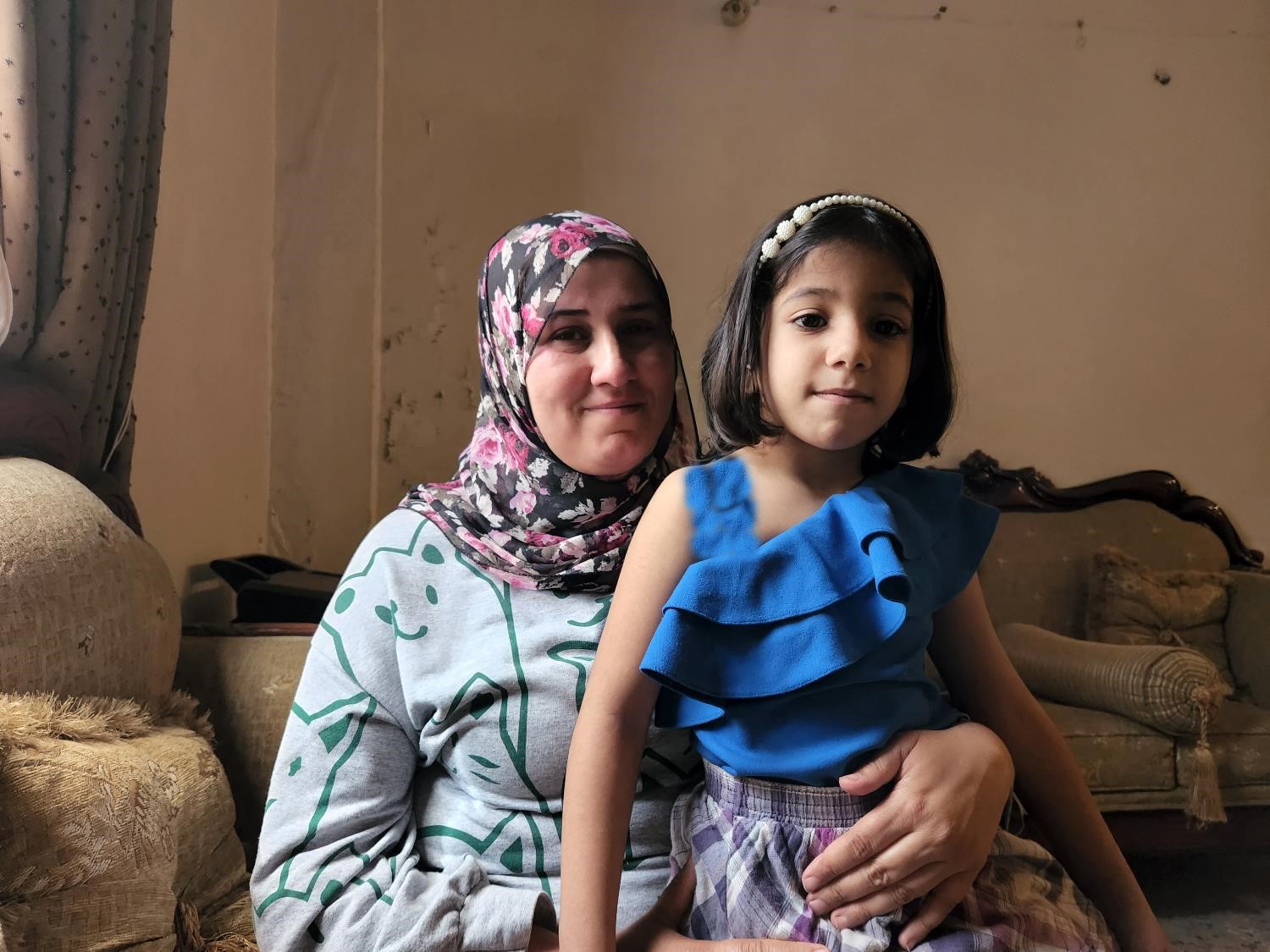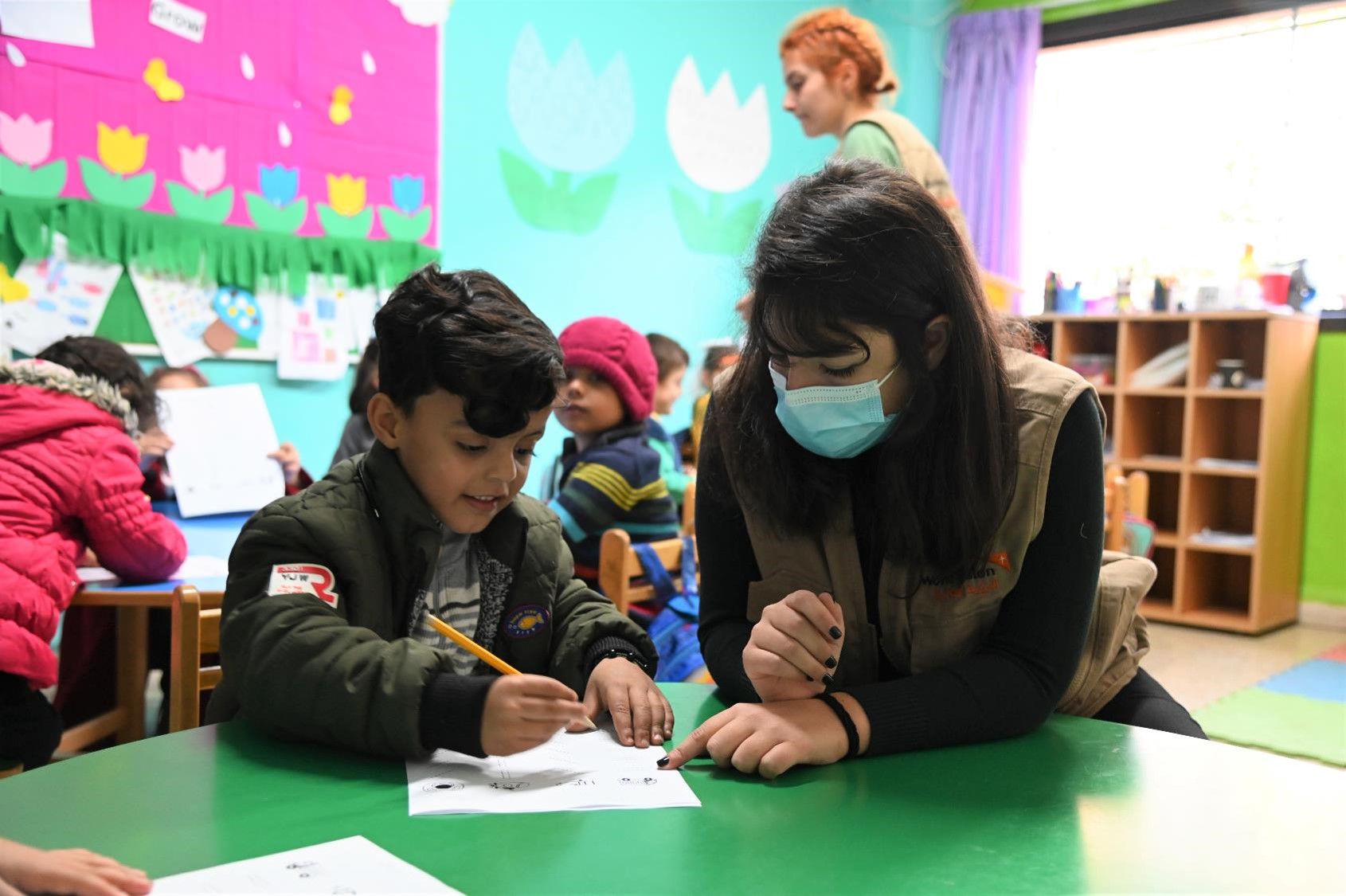Education During Multi-layered Crisis
By Sahar Tahar, Education Technical Specialist at World Vision Lebanon
I was lost between laughter and tears, hope and frustration while watching a video of a happy little girl dancing on her first day back to school in one of the conflict countries in the Middle East.
It was last September, the month of uncertainty about the opening of public schools here in Lebanon and getting Lebanese, refugees and migrant children back to schools. The energy of the little girl was contagious, and a smile was drew on my face instantly, but in my mind, I had mixed thoughts; will children in Lebanon have the chance to experience this same feeling?
In Lebanon, we can assure you that peace is not the absence of war. Since 2019, the country has been experiencing a multi-layered crisis, starting with an economic and financial crisis, Covid-19, and the disastrous Beirut Blast on August 2020, generating visible humanitarian consequences on the most vulnerable, and weakening an already fragile educational system, putting the educational lives of children in Lebanon at risk.
Luckily, this year, schools re-opened their doors with two shifts to support all children from different nationalities. Syrian children were given hope to take part in the formal and non-formal education programmes, but this did not put education in Lebanon in a safe zone. Based on the multidimensional poverty index, estimated, 1.45 million school-aged children are considered in need of support to access basic education, of whom around 662,000 are Lebanese more than 715,000 Syrians, around 13,300 migrants and about 56,000 Palestine refugees.
Among children aged 3 to 5, 11% were attending an early childhood education programmes and only 53% of school-aged children (6-14 years) were attending school in 2020-2021. Knowing that education is free in public schools, the two main reasons reported for not attending school are the cost of education materials and the cost of transportation[1] .

For example, Safaa could not register her little girl, Dalaa, 7, at school because she could not afford to pay for the bus. “Last week, all of them stayed home, the bus driver did not pick them up because we could not pay him. I had to ask a friend to lend me money for the bus,” she says. [2]
Child labour mainly for boys and child marriage for girls are reported as negative coping mechanisms. The financial barrier is not the only barrier for children to access education, the remote and hybrid learning modalities during Covid-19 with the lack or insufficient internet access, shortage of laptops, smartphones or tablets and loss of children's interest in learning led to a learning gap. Children dropped out of school due to their inability to acquire the needed competencies.
World Vision Lebanon is facing the crisis equipped with faith and successful project models. “Learning roots” is implemented to create pre-primary learning opportunities in joyful safe simulated environments for holistic development.
“I love to come here so I can learn to read, write and see my friends”, says 5-year-old Imane when asked about why she loves school.”[3]

“The classroom is a happy place for the children because they are learning new information”, Anna-Maria, Early Childhood Education (ECE) teacher with World Vision, affirms joyfully.[4]
The learning gap put “Unlock Literacy” with retention and catch-up classes on top of the education strategy to compensate for learning loss and support children in developing the needed Literacy and Numeracy skills to continue their educational experience. Nevertheless, “Cash for Education” is implemented to help families accommodate the educational needs of their children, and we cannot forget the importance of our partnerships with local communities where we build their capacity to implement World Vision’s project models and programmes to fight educational risks.
Hoping that the spirit of World Vision Lebanon is contagious as that of the little girl in the video, we urge you to keep Lebanon children in your prayers and their education in your priorities.
Other Useful References:
- The Role of Cash and Voucher Assistance in Increasing Equity and Inclusion for Girls and Children with Disabilities in Education in Emergencies
- Early Childhood Development Aged 0-3 years and 3-6 years
- View Catch Up Programme Video
[1] VASyR 2021- Education
[2] Reference: https://www.wvi.org/stories/lebanon/how-much-can-lebanese-mother-endure
[3] Reference: https://www.wvi.org/stories/lebanon/experiencing-education-happy-and-colourful-way
[4] Reference: https://www.wvi.org/stories/lebanon/responsibility-early-childhood-education-teachers-carry